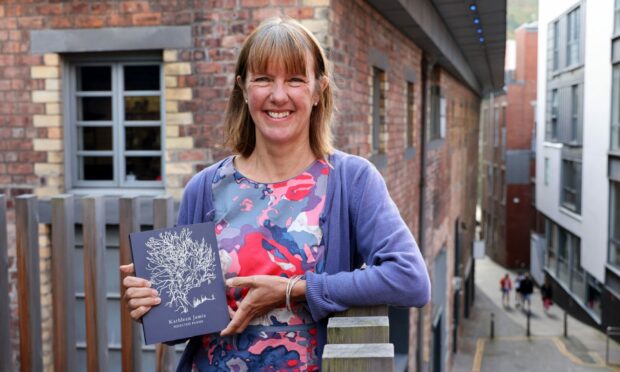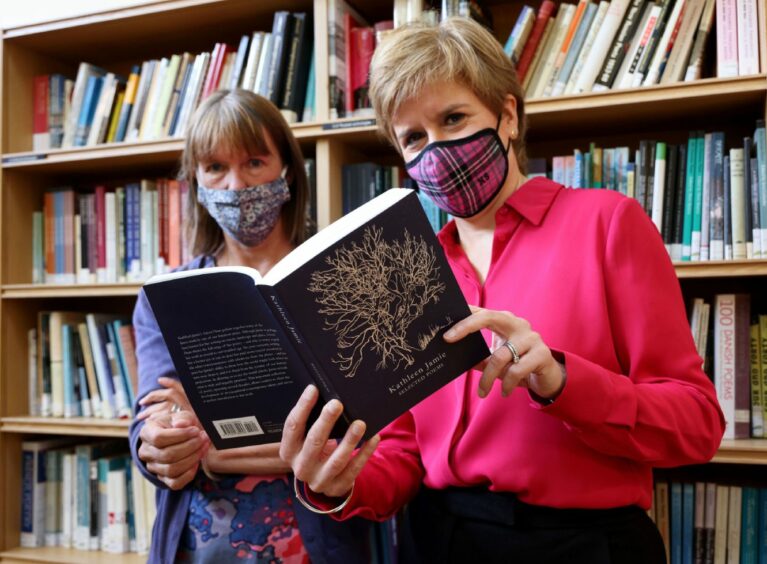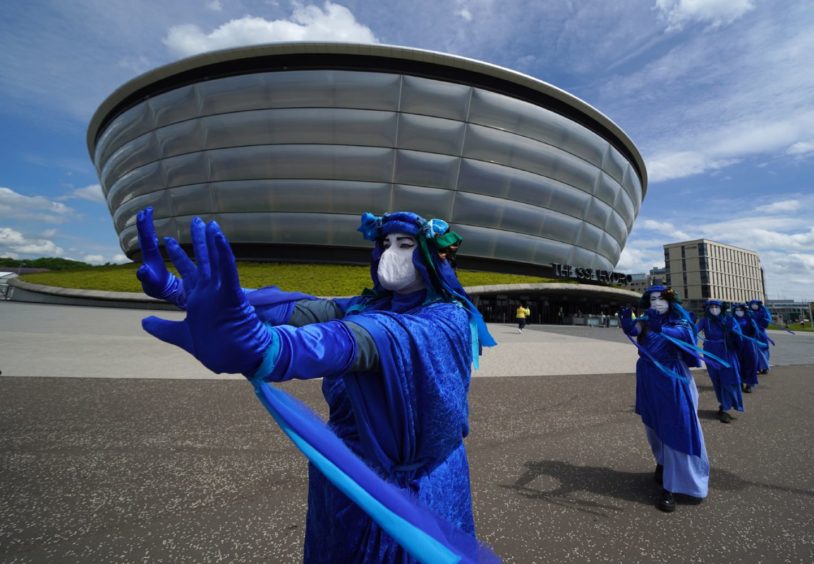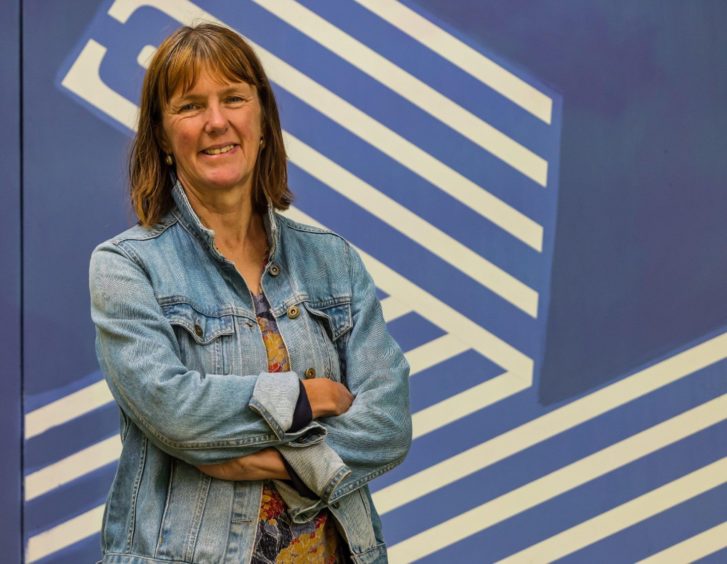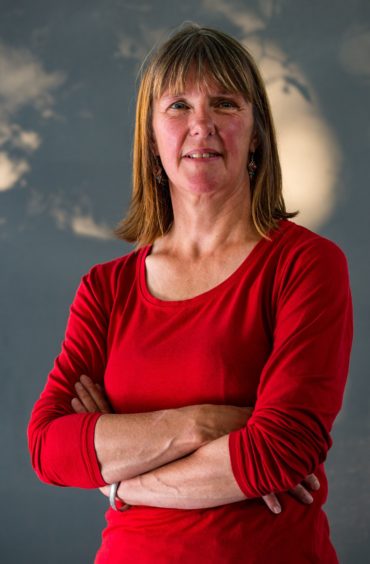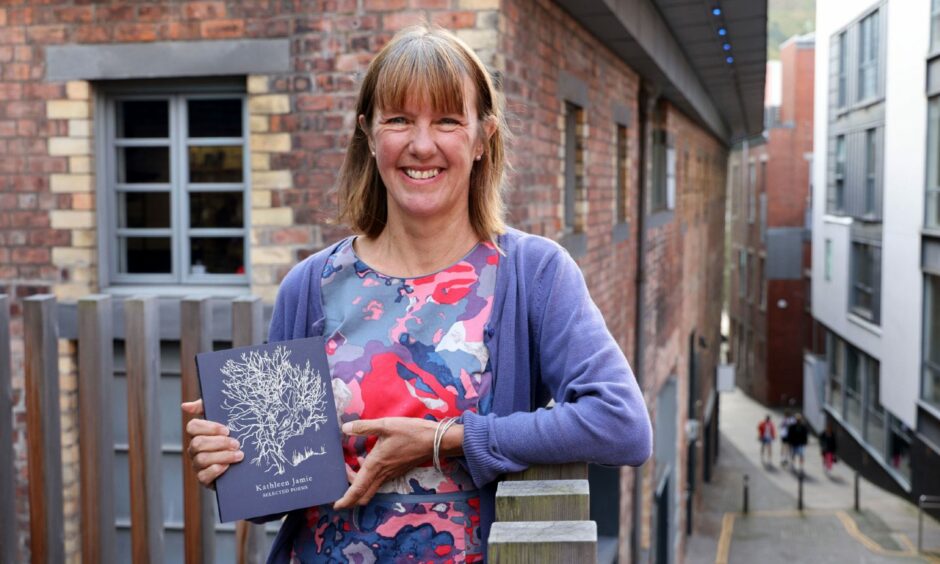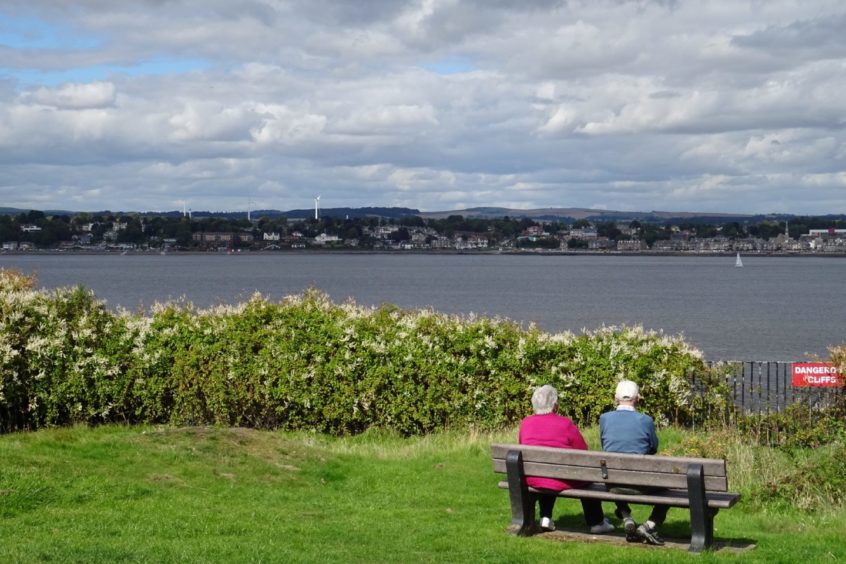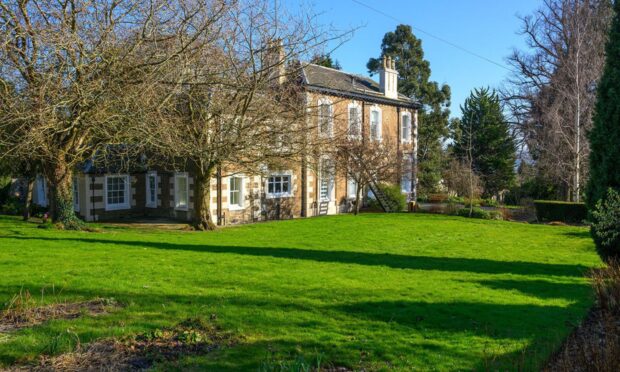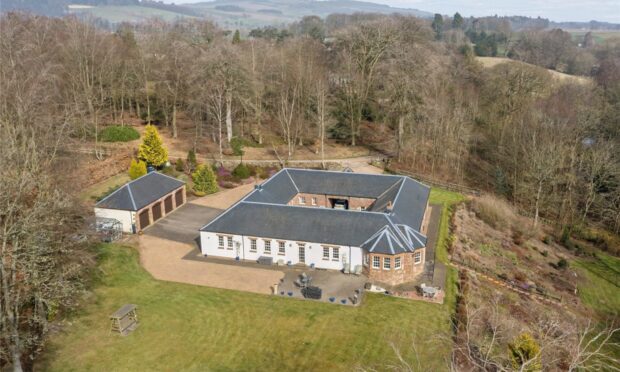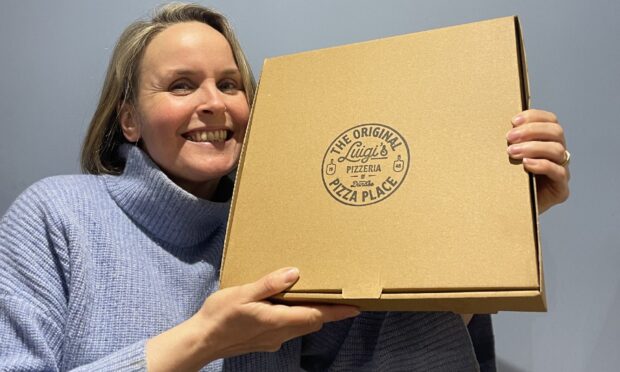Michael Alexander speaks to Fife-based poet Kathleen Jamie, who was recently appointed Scotland’s fourth Makar, and who is seeking public contributions to a Scottish nature poem ahead of COP26.
From Robert Burns to Hugh MacDiarmid, Scotland, with its mountains and hills, its banks and braes, has inspired poets – whether Scottish or otherwise – for centuries.
Poetry has always been at the heart of Scotland’s thinking about nature and the weather, and as a way to celebrate and mourn, to question and create.
Now, Scotland’s recently appointed national poet Kathleen Jamie of Newburgh in Fife, is using poetry to encapsulate the high stakes environmental challenges facing the planet.
Having been appointed Scots Makar in August, Kathleen’s first act is to curate a collaborative, collective Scottish nature poem, in time for the COP26 summit in Glasgow in November.
The collective poem will be composed of single lines submitted by anyone who lives in Scotland and who loves our planet.
It’s a collective poem because climate change affects everyone, everywhere and all species.
Nature poet
Kathleen’s writing is no stranger to Scottish landscape and culture.
However, in an interview with The Courier, she explains that she wanted to do something specific about nature with COP26 on the horizon.
“It’s a particular interest I’ve got,” she says.
“I was well aware that COP26 is coming up and coming up very soon.
“I was only appointed Makar a month ago, and was already thinking I’d like to do something about this massive and hugely important conference that’s happening in Scotland – how can I ignore it?
“But I also wanted it to be a communal or collective thing, because so many people are so anxious now, and so desperate to see something done.
“I thought, ‘well, since not everyone can physically go there, how can we make a poetry presence that marks the occasion and allows people to express something?’”
How can the public get involved?
Kathleen says the idea of a collective poem is not new.
However, ahead of the September 30 deadline for submissions, she says the number of lines already coming via the Scottish Poetry Library website has been “astonishing”.
Entrants of any age who live in Scotland can submit up to two lines of 12 words or less by September 30.
The only ask is that the lines should begin with ‘Let’s’ or ‘Today’ to give the finished poem coherence.
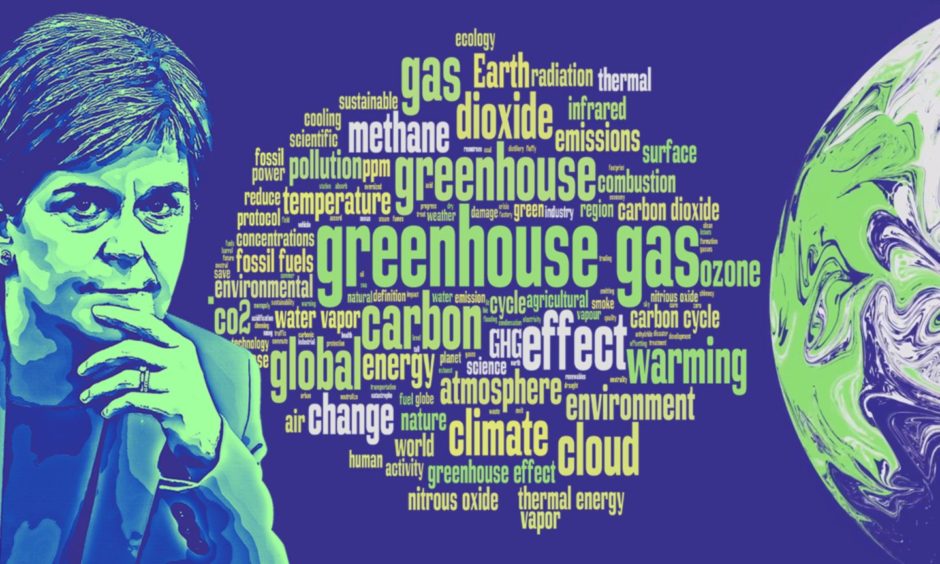
Submissions are welcomed in English, Scots or Gaelic and are anonymised before being forwarded on to Kathleen.
Lines may have to be altered, for example by tense, or perhaps shortened, to fit the overall shape and coherence of the poem. An example so far is “A kite’s high bred cry, his long autumn refrain”.
Finished poem
The finished poem will be made into a poetry film by Alastair Cook, an Edinburgh based artist who has previously worked with poets, filmmakers and composers to create an extensive archive of poetry films.
“My job is to arrange the lines and curate them and shape them into some form of coherent whole,” says Kathleen.
“What we do with them will be dependent on what we get, but we’ve already got loads!
“A film poem is in the offing. What we do with it in its entirety, we’ll just have to wait and see, but we’ll have to think of it quite quickly because we’ve only got about a month or six weeks to do it.”
Life and career
Raised in Currie, near Edinburgh, Kathleen studied philosophy at Edinburgh University, publishing her first poems as an undergraduate.
Her writing is rooted in Scottish landscape and culture, and ranges through travel, women’s issues, archaeology and visual art.
She writes in English and occasionally in Scots.
Her collections include Black Spiders (1982) and The Queen of Sheba (1995).
Her 2004 collection The Tree House revealed an increasing interest in the natural world, and won the Forward Poetry Prize and the Scottish Book of the Year Award.
Other accolades include the 2012 Costa poetry award for The Overhaul.
In 2016 she won the Saltire Society Book of the Year award for The Bonniest Companie – a collection created when, in 2014, she set herself the task of writing one poem per week.
Her collections of essays Findings, Sightlines and Surfacing are widely regarded as influential works of nature and landscape writing.
The latter was a co-winner of the Highland Book Prize in 2020. On publication in the United States, Sightlines won the John Burroughs Medal and the Orion Book Award.
However, while awards are always an honour for something she’s already done, her three year term as Makar, by contrast, is very much about looking to the future.
Biggest honour
“Becoming Makar is the biggest honour that Scotland’s able to bestow, so of course it’s special,” she says, adding that it was an honour to follow in the footsteps of the late Edwin Morgan, as well as Liz Lochhead and Jackie Kay.
“The job description covers a lot about encouragement and engagement with poetry and literature and there are a few set things every year that the Makar’s asked to do.
“The first for example is next month at the opening of the Scottish Parliament. I’ve to write and read a poem at the opening ceremony. So there will be a few official engagements like that every year.
“The rest of the while it’s things like this nature poem – engaging with people and their writing and public events and whatnot.”
Starting young
Like most writers, Kathleen started young. She wrote her first poems aged 15 or 16.
Whereas many people are “obliged to give up” writing or “just don’t persist”, she kept it going.
One thing she’s noticed over 40 years is that her style always changes.
There’s been spells where she hasn’t written for a couple of years, knowing only that when she returns to it, her style will be different.
However, she’s not keen to use the word “inspiration” when talking about why she chooses to write about certain things. In fact, she finds any such suggestion “a bit weird”.
“Every so often a little thing you see or hear, a memory – something will come to mind and it’ll have a sort of – I don’t know how to describe – a sort of aura or feeling about it,” she says. “How can you make a poem of this?
“Winning prizes is wonderful and they tend to be for things that I’ve done already like a book.
“But the Makar thing is looking into the future – saying here’s three years for you to carry forth and do whatever you have to do. All the Makars are different. We’ve all known each other but we are very very different people. I don’t know how to express that – it’s a forward looking thing.”
Importance of COP26
With poetry being of the senses, Kathleen thinks it’s got an essential role to play in expressing public mood at COP26.
“We’ve always used poetry as a way of working out what we think and feel, and poetry has been forever associated with the natural world,” she says.
“Then it went away and now it’s come back with a massive energy.
“Poetry is a place where people can stop and think and look and feel, and use their senses and use language. That’s massively important in our culture. Scottish poetry going way back of course has always been massively important.
“I think 20, 30 years ago we were saying ‘oh poetry’s gone, it’s dead, it’s finished’. Then wham back it came!
“But another important thing is that poetry is for everyone. Don’t for one minute think poetry was ever a highfalutin thing. It never was – particularly In Scotland. Think about the ballads, think about Burns – these are ordinary every day folk.”
Love of nature
Kathleen enjoyed nature when young. Looking back to growing up in Currie, she realises it was a brilliant place because she had the Pentland Hills a bus ride away in one direction and the centre of Edinburgh, an international city, in the other.
She admits she lost interest in the environment for a while. Later, the now 59-year-old, who walks her two young collie dogs on the banks of the Tay, has found a renewed appreciation.
“One day I thought ‘why am I not thinking about this’?, and I decided to do something about that,” she says.
“It just so happened that I was one of a sudden movement amongst writers to reconsider nature writing which had fallen right out of fashion. That was about 20 years ago. And nature writing is now everywhere.”
On the significance of COP26 being in Glasgow, she adds: “I don’t really care where it happens so long as it happens, and so long as something gets done.
“But the fact that it’s happening here in our country, obviously the whole world’s going to be looking at Glasgow for that sort of spell. As I understand it, an amazing number of world leaders are turning up, so it’s a huge deal – if something gets done!”
*Nature poem Lines can be submitted to Scotland’s Nature Poem until September 30 via the Scottish Poetry Library website scottishpoetrylibrary.org.uk/35953-2/
